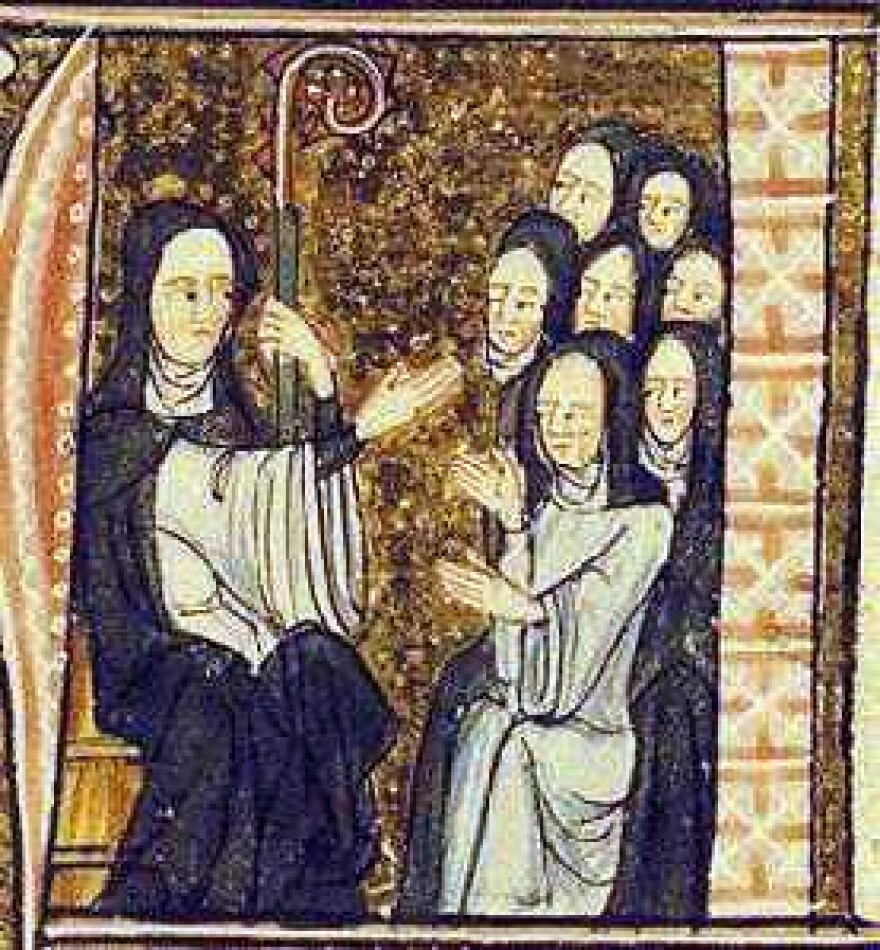
We know her now as a composer of atmospheric chant… but in her lifetime, Saint Hildegard von Bingen was better known as a theologian, herbalist, writer, leader of a religious order, and advisor and confidant of Popes. Born in 1098 to a noble German family, Hildegard experienced her first religious vision at the age of 5. At 14 she and another young noblewoman, Jutta von Spanheim, were cloistered at a Benedictine monastery, The two exchanged letters frequently with the outside world, becoming known for their spiritual and theological knowledge. Soon joined by other noblewomen, Abbess Hildegard would establish her own convents in Rupertsberg and Eibingen.
Although we don’t know when she began composing, she may have learned to play the psaltry between religious services… as much as four to five hours per day of that... and probably learned simple psalm notation from her order’s visiting monk. Among her best-known works is the morality play Ordo virtutum--- which tells the story of a soul, tempted by the Devil, finding its way back to the refuge of the Virtues. Hildegard made effective use of a more melodic late-medieval chant style, and gave a clear characterization of the Devil: he never sings, he only shouts.
Because her order collected and preserved her music--- and perhaps because most other Medieval musicians remained anonymous--- Hildegard holds the record as the most prolific composer of her time.
Hildegard von Bingen… a Composing Woman.




